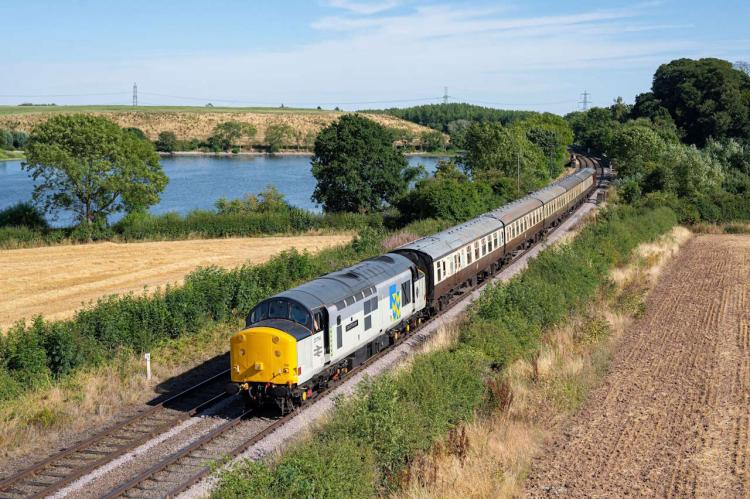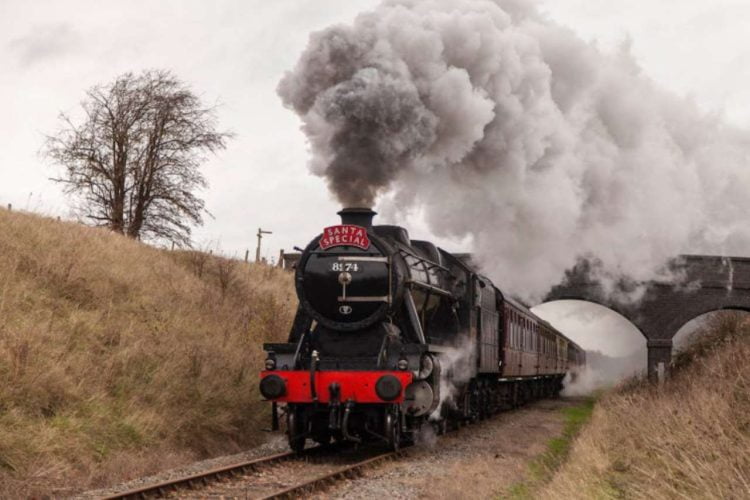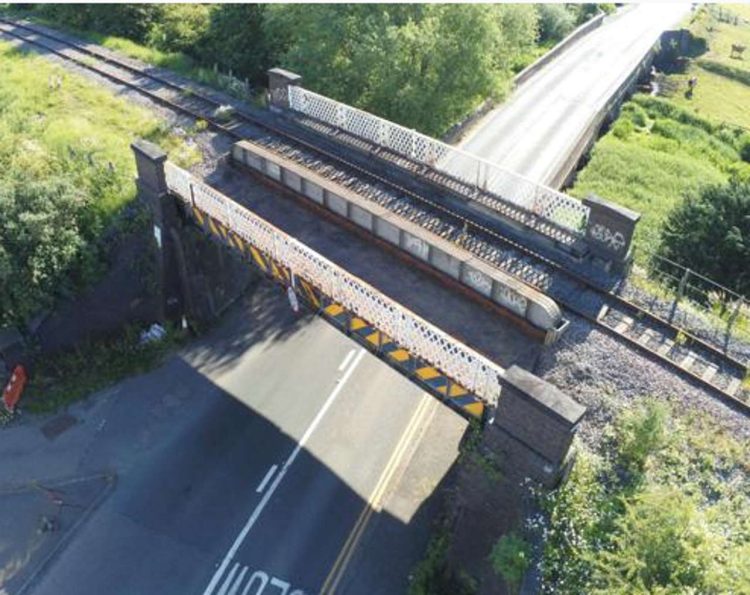The Great Central Railway has launched a half-million-pound appeal to fund the production of design documents for the ambitious plans for its ‘Reunification’ project.
The ‘Reunification’ project will connect the two separate heritage Great Central Railways to create an eighteen-mile line centred on Loughborough and stretching from north of Leicester to south of Nottingham.
To connect the two parts of the railway will require the construction of two steel bridge spans, one to carry the railway across a culvert and the other to take it over Railway Terrace road in Loughborough.
The appeal is to enable full designs of these bridges to be produced so they can be included in a planning application that will be submitted along with the necessary reports.

The Great Central was opened in 1899 and is known as Britain’s last main line. It provided a fast main line between Manchester, Sheffield and London, but was closed in the 1960s.
Restoring the missing section started in 2017. Since then, one new bridge has been built, one replaced and a third completely refurbished, and millions of pounds have already been raised to fund the work.

In 2012, two bridge decks were obtained for the scheme, but the Great Central has found that they are no longer needed.
Donations towards the ‘Reunification’ project can be made at gcrailway.co.uk/unify

We’ll be submitting our planning application in a matter of weeks, so we want to tell people about our plans. The new image shows a train running on the proposed viaduct. Originally we had expected to build an embankment around 300 metres long but the space we have available would have made that quite complex. Our new plan needs 100 metres of embankment, then 200 metres of viaduct. It should be slightly cheaper and simpler to construct.”
After we have submitted our planning application we’ll need to spend around half a million pounds taking the design documents and turning them into construction and engineering blueprints. Those documents are essential – as is planning consent – before we can build again.
While we have £2m already raised for the project, we want to protect as much of that fund as possible for actual building work. Our new appeal for half a million pounds is to fund the vital next steps and get this epic project ‘shovel ready.’ The more money we raise, the sooner we can build again and the more we can achieve.”
The bridge decks were kindly donated by Network Rail when they were removed from Reading station. They were absolutely instrumental in getting the whole Reunification project started.
However with our design changes they would require expensive modification to fit with our plans so with regret we have decided they will be disposed of in due course. Instead the two steel bridge spans required for the Reunification line are more than likely to be brand new structures.
General Manager of the Great Central Railway Malcolm Holmes






Responses
Apologies figures should be £5. Typo error !
Forgive me but the description seems to be a bit puzzling. My knowledge of projects with detailed plans involves architects charging 10% of the final cost for their project. The final cost must be available for then to know how much to charge. Logic therefore is that the whole project might cost £50m, minus £2m.